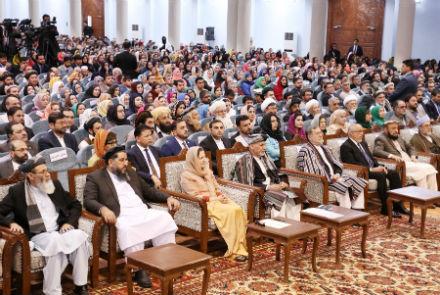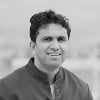A day after the conclusion of the grand assembly of 3,200 delegates from around the country, a number of presidential candidates reacted to the resolution of the grand council and said it was not in favor of the people and that it did not encompass anything new.
The grand council, also called the Grand Consultative Jirga for Peace, was suggested by President Ghani in February in order to determine a framework for peace talks with the Taliban.
In their 23-article resolution, the Peace Jirga delegates called for an immediate ceasefire between the Afghan government and the Taliban.
President Ghani, who addressed the Jirga’s closing ceremony on Friday, May 3, said he is ready for a ceasefire with the Taliban and that the resolution will change into an action plan for the Afghan government.
Chief Executive Abdullah Abdullah, who is running for president and who boycotted the Jirga, said that “overall, the issues which were expressed in the Loya Jirga resolution were not new. “We had reasons for not attending the Jirga,” Abdullah said in an interview with Anadolu News Agency on May 3.
Rahmatullah Nabil, another presidential candidate, who also boycotted the Jirga, said he sees the Taliban as the winner of the Jirga.
“Unfortunately, the main winner of the Jirga is I think the Taliban and I have reasons for that. First, the Jirga created a political division among the political elites and Taliban will benefit from this,” Nabil said at a press conference on Saturday.
Officials from two other election tickets also reacted to the grand council, claiming that a majority of the delegates were government employees.
“They are working for elections. They were trying to create a campaign network for the President (Ashraf Ghani) and they did it and they will use it in the upcoming elections,” said Shahab Hakimi, a presidential candidate.
“This Jirga was not based on the constitutional norms and neither was it held in accordance with the traditional Jirgas (assemblies),” said Qadir Shah, a spokesman for Peace and Moderation team led by former National Security Advisor Mohammad Haneef Atmar.
The Peace Jirga which continued for five days was boycotted by almost all presidential candidates and mainstream political parties in the country.


